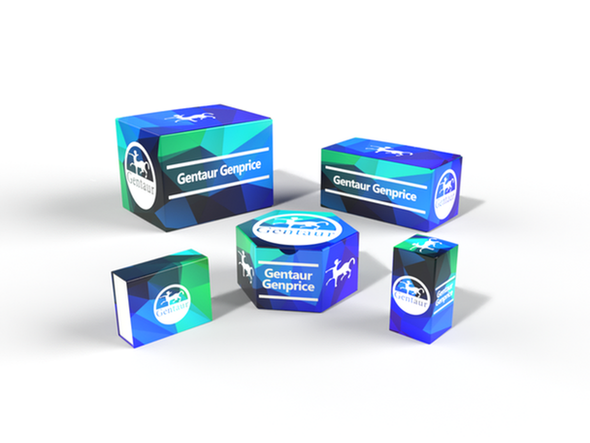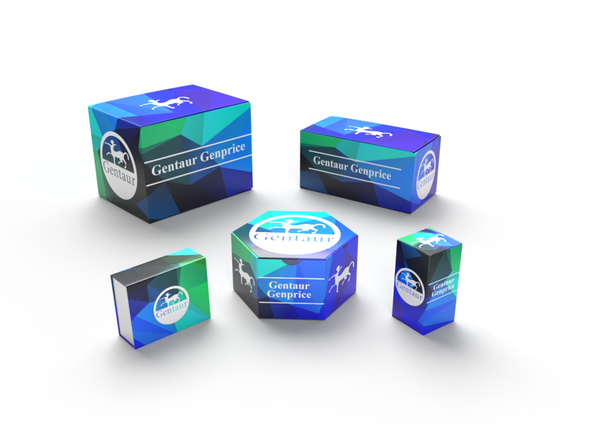Description
CCL4 Antibody | 7227 | Gentaur UK, US & Europe Distribution
Host: Rabbit
Reactivity: Human, Mouse, Rat
Homology: Predicted species reactivity based on immunogen sequence: Rabbit: (80%) , Pig: (80%) , Bovine: (85%)
Immunogen: Rabbit polyclonal CCL4 antibody was raised against a 15 amino acid peptide near the center of human CCL4.
The immunogen is located within the first 50 amino acids of CCL4.
Research Area: Immunology
Tested Application: E, WB, IHC-P, IF
Application: CCL4 antibody can be used for detection of CCL4 by Western blot at 1 - 2 μg/mL.
Antibody validated: Western Blot in rat samples; Immunohistochemistry in rat samples and Immunofluorescence in rat samples. All other applications and species not yet tested.
Specificiy: N/A
Positive Control 1: Cat. No. 1463 - Rat Brain Tissue Lysate
Positive Control 2: N/A
Positive Control 3: N/A
Positive Control 4: N/A
Positive Control 5: N/A
Positive Control 6: N/A
Molecular Weight: Predicted: 10 kDa
Validation: N/A
Isoform: N/A
Purification: CCL4 Antibody is affinity chromatography purified via peptide column.
Clonality: Polyclonal
Clone: N/A
Isotype: IgG
Conjugate: Unconjugated
Physical State: Liquid
Buffer: CCL4 Antibody is supplied in PBS containing 0.02% sodium azide.
Concentration: 1 mg/mL
Storage Condition: CCL4 antibody can be stored at 4˚C for three months and -20˚C, stable for up to one year.
Alternate Name: CCL4 Antibody: ACT2, G-26, HC21, LAG1, LAG-1, MIP1B, SCYA2, SCYA4, MIP1B1, AT744.1, MIP-1-beta, C-C motif chemokine 4, G-26 T-lymphocyte-secreted protein
User Note: Optimal dilutions for each application to be determined by the researcher.
BACKGROUND: CCL4 Antibody: CCL4, also known as macrophage inflammatory protein 1-beta (MIP1B) , belongs to the intercrine beta (chemokine CC) family. Both CCL4 and the related protein CCL3 participate in the host response to invading bacterial, viral, parasite and fungal pathogens by regulating the trafficking and activation state of selected subgroups of inflammatory cells. While both CCL4 and CCL3 exert similar effects on monocytes, their effect on lymphocytes differ; with CCL4 selectively attracting CD4+ lymphocytes and CCL3 selectively attracting CD8+ lymphocytes. Additionally, both have been shown to be potent chemoattractants for B cells, eosinophils and dendritic cells. The processed form of CCL4 can induce down-modulation of surface expression of the chemokine receptor CCR5, thus inhibiting the CCR5-mediated entry of HIV-1 in T cells.






